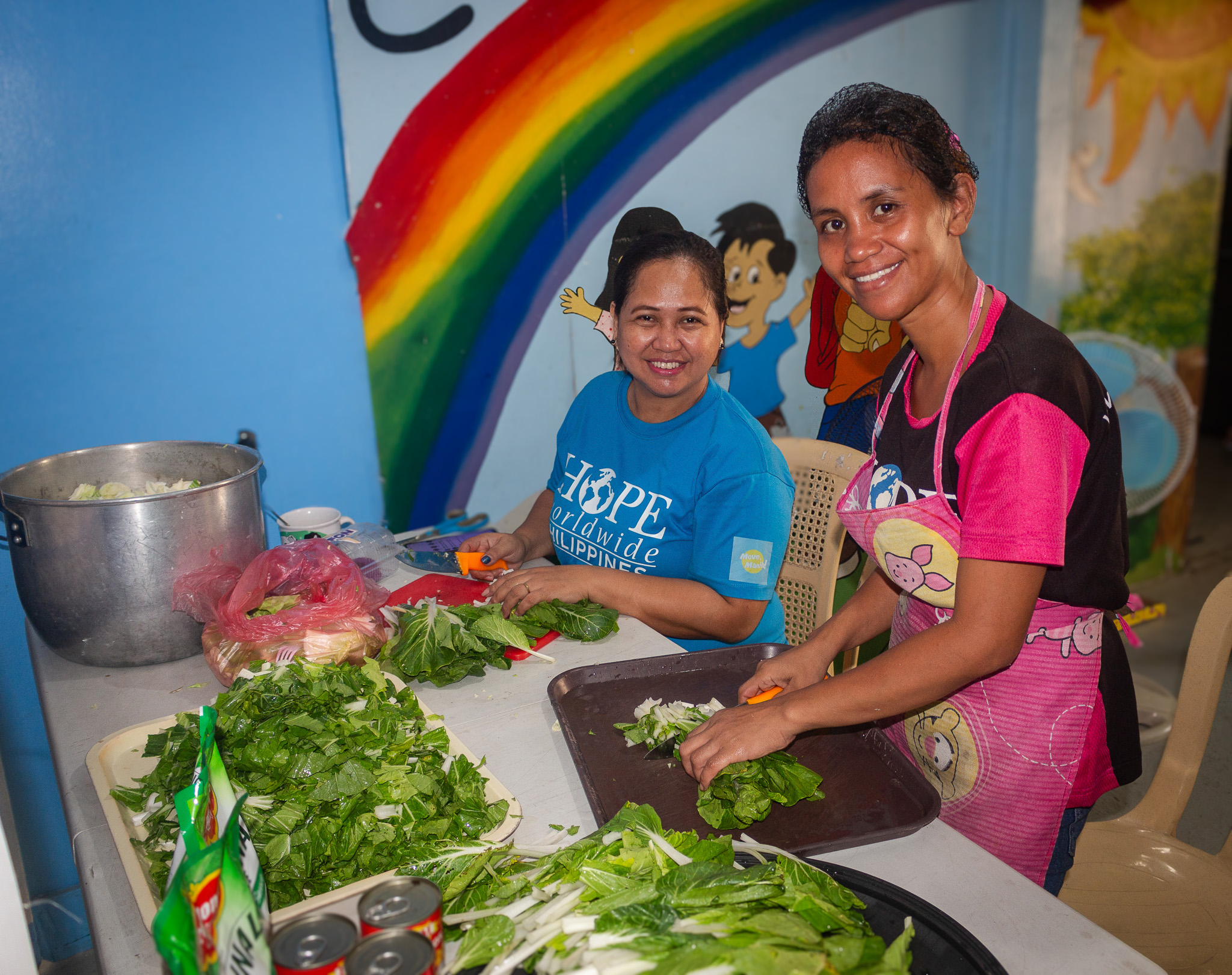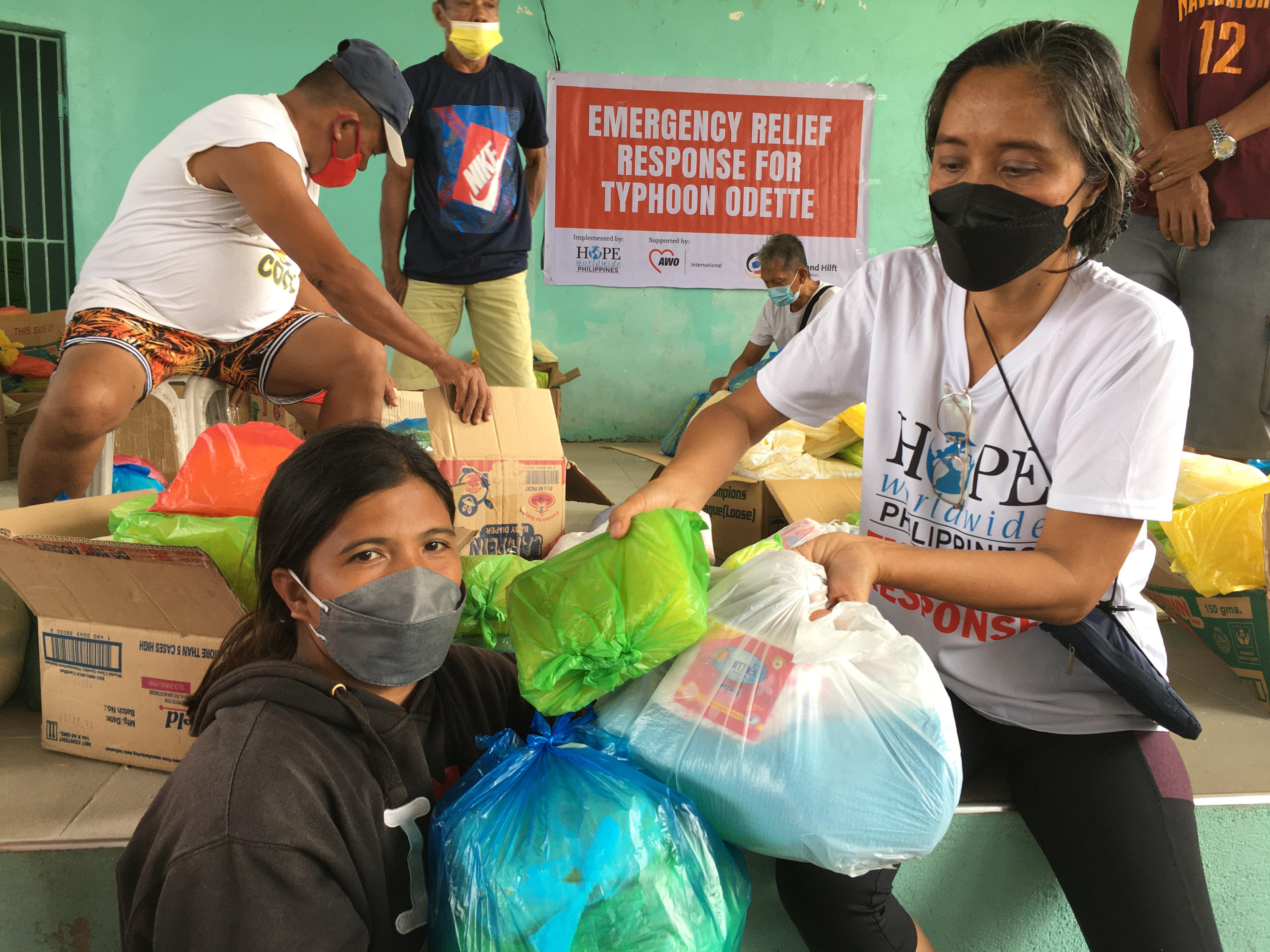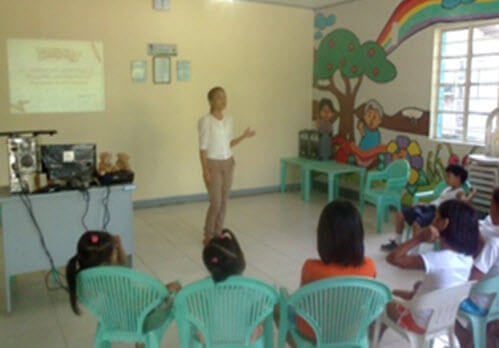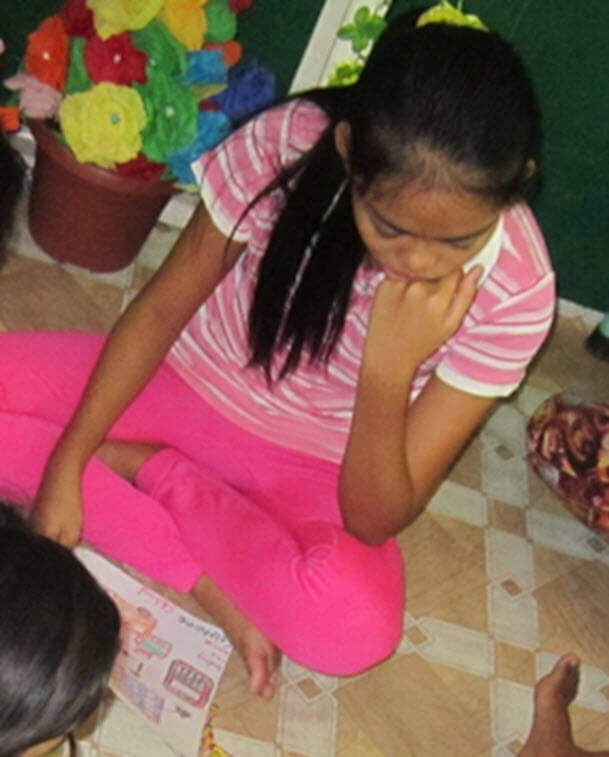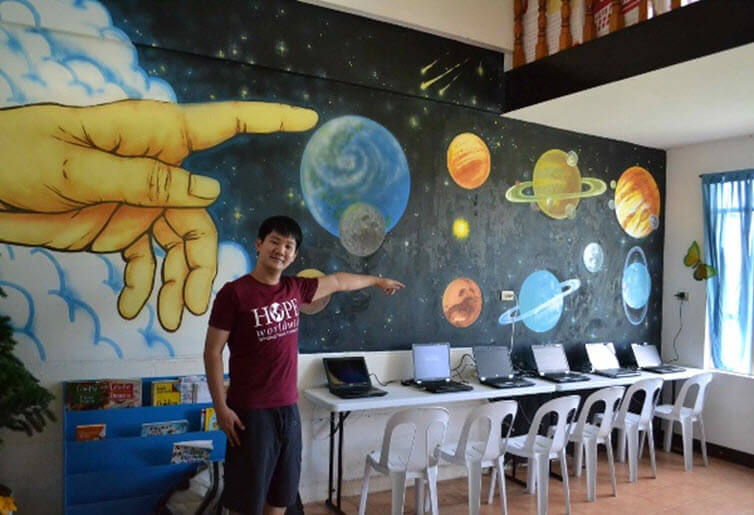BRINGING Hope. CHANGING Lives. TRANSFORMING Communities.
Stories of HOPE
Show More-



-
Who are We
HOPE worldwide Philippines, Inc. has established a model child welfare and protection system for Filipino Children in Especially Difficult Circumstances (CEDC). For more than two decades and a half, it has provided child protection and advocacy services, education, health and nutrition services, life-saving emergency supplies during disasters, community support services, professional services and most importantly the presence of caring full-time staff, our donors, partners and volunteers who work directly with poor children and families.
HOPE worldwide Philippines, Inc. is registered with the Securities and Exchange Commission and licensed by the Department of Social Welfare and Development. It is also an affiliate of HOPE worldwide, an international charity that changes lives by harnessing the compassion and commitment of dedicated staff and volunteers to deliver sustainable, high-impact, community-based services to the poor and needy.
HOPE worldwide holds special consultative status with the Economic and Social Council of the United Nations.
Our Programs
Protection
-
Residential Care
This program is designed to provide temporary shelter to abused, neglected, or abandoned children where it is unsafe for them to stay in their homes, relatives, or communities. It is also an immediate response to children to temporarily pull them out from their traumatic experience to allow them to heal, process, and recover. The temporary residential care has been running for more than 18 years now, servicing to more than 200 abused children over the years.
-
Case Management
The program implements the multi-disciplinary approach to provide more comprehensive case management services to child victims of abuse, especially sexual abuse. The multi-disciplinary team is composed of social worker, counsellor, psychologist, teacher, house parents, lawyer, and medical doctor/nurses. The social worker takes responsibility for an “structured arrangement” of services to heal, rehabilitate, care for or seek change for the child victim. Each case typically involves three stages: assessment, intervention/treatment, and recovery. The social worker and the multi-disciplinary team conduct a weekly case conference to discuss, assess, and propose individualized treatment strategies for each child.
-
Aftercare Support
Aftercare and Monitoring is an after care service of the Center of HOPE Residential Program in order to monitor a child’s adjustment and functioning, coping and life skills on self, family, environment, and community and vise-versa. It also aims to assist the client and the family on how to cope and move on with their current functioning and ensure the protection and safety of the client. The aftercare program may last for 6 months or up to five years.
-
Independent Living
The Independent Living and Group Homes Program is a response to the needs of residential care beneficiaries whose reunification with the family seemed unworkable. In the 13 years of Center of HOPE Residential Care Program, there are children who stayed longer due to abandonment, being orphaned, and having families that are uncooperative. Thus, Group Homes for children ages 13 to 16, and young adolescents ages 17 to 21, are transferred to a house in a normal community setting but with constant monitoring of a social worker. The program is designed for teenagers to learn independence and to develop character and skills to make them more conscientious and good citizens in their community.
-
Treatment and Recovery
This program aims to instil a sense of wholeness in children who experienced sexual and/or physical abuse. The program helps the children deal with their trauma, guilt, and anger through different modalities, like clinical interview, psychological testing and evaluation, psychiatric assessment and formulate interventions, individual/group counselling, and individual/group therapy.
-
Prevention, Identification, and Treatment of Child
Promote the prevention, identification, and treatment of child abuse and collaborate with key players of the community for child’s rights and protection. To promote prevention, identification and treatment of child sexual abuse thru provision of direct empowerment to grade school and high school students against abuse by way of puppet shows and youth advocacy.
-
Capacity Building
To educate the primary and secondary caregivers of the children (parents and teachers) on how to prevent and handle abuse cases; and on how to collaborate with key players of the community for the protection of children.
-
Partnership
To establish Child Protection System in the target schools and communities in the area of coverage through partnerships with government agencies and other organizations focusing on the protection of children.
Education
-
Children-in-Crisis Situation
Out of 100 Grade One pupils, only 66 finish Grade six. Only 58 of the 66 go on to enroll in first-year high school and only 43 finish high school. Of the 43 who finished high school, only 23 enroll in college and only 14 of the 23 graduate from college.- Data from the Commission on Higher Education (CHEd) 2008
-
Child Sponsorship
Most poor Filipino children stop going to school due to hunger and poverty. Parents do not want to send them to school, even if education is free, because they can hardly feed their kids nor give them support. In addition, it is impossible for children to focus on learning on an empty stomach. It is for this reason that HOPE worldwide Philippines developed the Child Development Support Program to ensure that poor children have adequate support in their physical and mental developmental needs and assist them in accessing other opportunities to improve their lives and achieve their dreams.
-
Alternative Learning System
Alternative Learning System (ALS) is a parallel learning system designed by the Philippine Department of Education (DepEd) that provides a practical option to the existing formal instruction offered to those who do not have or cannot access formal education in schools. This program is adopted by the Centers of HOPE worldwide Philippines for children and youth who are not enrolled in formal education. It aims to provide learning opportunities for the beneficiaries’ continuous education by implementing tutorials and regular classes with structured modular activities thus reaching readiness to take the government acceleration tests.
-
Computer and Library Center
The Computer Training Center in each Center of HOPE aims to improve the computer skills of the youth and beneficiaries of the Child Sponsorship Program. The computer laboratory is equipped with top-of-the-line computer hardware and software. This keep them updated with the latest technology and will eventually help them land a better job.
-
Daycare School
Daycare Program caters to children, ages 3.5 to 4.5 years, focusing on basic literacy (writing, reading, and counting) and the standard Early Childhood Care and Development Checklist (ECCD). Centers of HOPE in Baseco-Manila, Payatas-Quezon City, Biñan-Laguna, Daanbantayan-Cebu, Tacloban, and Ormoc City are built to provide the less fortunate children with opportunities to grow, ensuring their rights to education.
Health
-
Undernourished Children
The malnutrition prevalence rate among children increased from 24.6 percent in 2005 to 26.2 percent in 2008. Over 44 percent of Filipino children aged 15 and below live in poverty, according to the two-year Unicef-PIDS-NSCB study. (Published by Daily Inquirer in October 10, 2010)
-
Nurturing Expectant Teenage Mothers
Expecting mothers have what is called the nesting instinct, an urge in pregnant women to prepare a home for the upcoming nester(s). This is the time they clean their homes and prepare for their newborn. However, teen years in not the appropriate age for pregnancy.
-
Life for a Child (With Diabetes)
The program aims to provide the poor children with diabetes important medical supplies and medicines like sufficient insulin and syringes, blood glucose monitoring equipment, appropriate clinical care, HbA1c testing, diabetes education and medical care from health professionals in our partner hospitals and medical professional organizations. This program operates in partnership with the International Diabetes Federation of Australia.
-
Medical and Dental
im to provide free medical services, immediate medical care to urgent cases, diagnostic tests and medicines to low income and underserved communities.
-
Essential Nutrition
This program commits to improve the health condition of the undernourished children under our Daycare and Child Friendly Spaces Programs through feeding and medical assistance.
Disaster Response
-
Emergency Livelihood and Livelihood Recovery
Emergency employment such as Cash-for-Work are provided to survivors of disasters to assist them for early recovery. Long-term livelihood recovery provide supports to on-going community initiatives to help the people and the local economy recover from the effects of disasters.
-
Emergency Relief
Pre-positioning of goods-in-kind and immediate delivery of food and emergency supplies to disaster-stricken communities. Goods are provided within 72 hours.
-
Children Centers and Psychosocial Activities
Establishment of children centers to provide child friendly spaces in the affected communities.
-
DRR Capability Training
Aim to build the capacity and disaster resilience of key people in the target communities, schools, and churches.
-
Nutrition and Feeding Support
Provided for displaced children in the evacuation centers and child friendly spaces of HOPE worldwide.
-
Child Protection Services
Provided for displaced children most especially for unaccompanied, separated, and orphaned children survivor of disasters.
-
Psychological First Aid and Psychological Recovery Services
Help individuals and families recover from psychological effects of disasters.
-
Shelter and School Rehabilitation
Provision of shelter kits, school construction materials and volunteer manpower services through “bayanihan” to rebuild the destroyed villages.
-
Communication
Establishment of children centers to provide child friendly spaces in the affected communities.
Volunteer
-
Corporate Social Responsibility
Provide corporations an opportunity to engage their company and employees to get involved first hand in helping the poor in our Centers of HOPE and communities. Interested companies are offered project that they can adopt and support from short-term to long-term partnership. Click here to contact us for the possible programs for CSR partnership.
-
Special Activities and Outreach
Such as children’s month, field trips, Christmas gift-giving and other recreational activities are offered to interested volunteers and groups to support.
-
HOPE Volunteer Corps
This is an annual international volunteer activity which aims to serve the poor and allow the youth to experience the way of living in the communities. A minimum of 50 foreign delegates and 15 local youth participants were being sent to poor communities in two (2) weeks time to help repair school, build shelters, and provide support to other HOPE programs. International delegates can register through HOPE worldwide Headquarters and the local delegates registration will be accepted through HOPE worldwide Philippines.
-
HOPE worldwide Philippines Association Membership
HOPE worldwide Philippines is a faith-based, non-profit, and non-government organization. Association Membership is being offered to its founding church affiliation members. An association member may have also the opportunity to be nominated and/or elected as part of the board of trustees or a board officer during the general assembly. To request for association membership application, please send an email to Vina Denuevo at vina.denuevo@hopewwph.org.
Development
-
Child Sponsorship
Child Sponsorship is an opportunity to help children in extreme poverty to attend school and to end hunger and malnutrition through essential food support. This project also provide a venue for sponsors and sponsored children a guided communication support to strengthen information linkages.(Food support per month – P700; School support per month – P500. )
-
Project Partnership
Project Partnership is offered to interested funding agencies, corporations, and churches to fund existing programs in the Centers of HOPE. Partnership project provides an opportunity to get the employees or church members to get involved first hand on the programs by HOPE.
-
Livelihood Recovery Products
Livelihood Recovery Products are available for sale to support community development and livelihood initiatives from low income families or survivors of disasters.
-
Run For HOPE
Run for HOPE is an annual fundraising campaign of HOPE worldwide Philippines to raise funds thru the help of volunteers by soliciting support from friends and networks to sponsor their run per kilometer.
-
Center of HOPE Campsite and Recreational Facility
Center of HOPE Campsite and Recreational Facility is a 2.2 hectare facility in Binan, Laguna that provides reasonably priced accommodation to guests. The venue is good for training, children campsite and family retreats. Income of the facility supports the Feeding Program of the organization. Organic vegetables grown in the Center are also offered to our guest in reasonable prices.
-
Project Proposals
Project Proposals of the development team of the organization are seeking grants to funding agencies, government, and foundations. You can help by referring your prospects and contacts to Jun Velasco at jun.velasco@hopeww.org.
-
Resource Mobilization
Resource Mobilization to fund the pressing needs of the organization through personal donations and/or doing own fundraising campaign such as charity dinner, auction, concert, sports related fundraising activities, talent showcase and the like. Please coordinate your plans with us or send email at jun.velasco@hopeww.org.
Major Donors
Thank you for your continued support and partnership!


Let's bring HOPE
Pure and genuine religion in the sight of God the Father means caring for orphans and widows in their distress and refusing to let the world corrupt you. James 1:27 NLT
